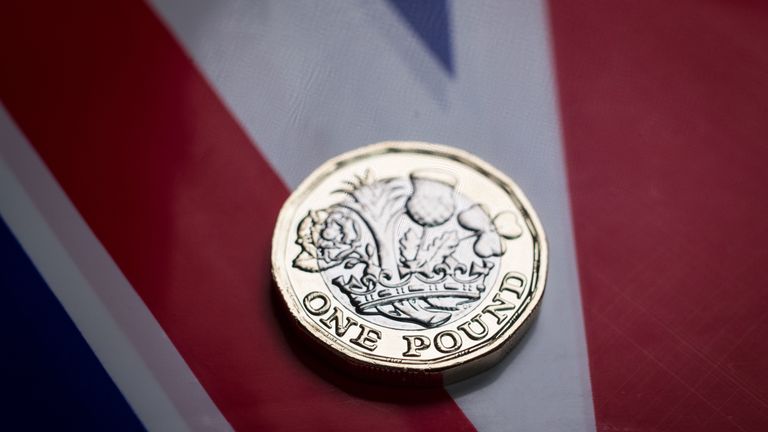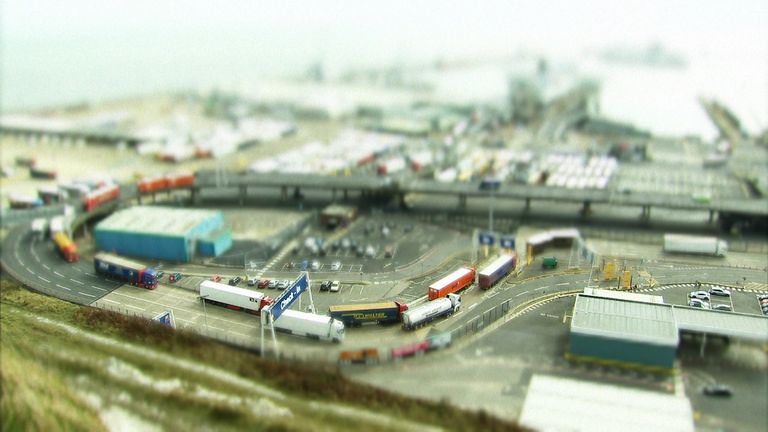Post-Brexit trade deal 'desirable but not essential' - report
The Institute of Economic Affairs says Britain should walk away if a bad deal is offered at the end of talks with the EU.
Friday 18 August 2017 10:56, UK
A trade deal with the EU following Britain's exit from the bloc is "desirable but not essential", according to a leading free-market think-tank.
The Institute of Economic Affairs (IEA) has said the possibility of a hard Brexit - which would mean the UK leaving the European Union with no ongoing trade deal and therefore defaulting to World Trade Organisation rules - would "not be a disaster", despite most businesses and politicians in Britain warning against it.
"Many people believe that disaster will befall us if we do not forge a deal with the EU," says the IEA's research director, Jamie Whyte.
"In fact, we could unilaterally eliminate all import tariffs, which would give us most of the benefits of trade, and export to the EU under the umbrella of the WTO rules.
"Then we can seek free-trade deals with all major trading partners, including the EU."
According to the report, the UK's primary concern when it comes to trade with the rest of the world should be British consumers, not British manufacturers or producers, and a much broader system of free trade with the rest of the world can only help bring everyday prices down.
This is because, the report says, the UK would be able to import goods from countries such as South Africa and further afield without the high tariffs imposed by the EU.
The IEA does admit that such an approach would result in job losses for 8% of workers who currently enjoy the protection of tariffs, but says this would be "easily offset" by the job creation in other sectors that would result from the economic boost received from free trade.
But the approach being championed by the IEA flies in the face of calls from the majority of businesses in the UK, who falling off a "cliff-edge" after Britain leaves the EU could be extremely damaging to the country's economy.
Earlier this week, the Department for Exiting to EU published a position paper outlining the Government's intention to seek with Europe for at least two years following Brexit to allow the UK time to pursue and agree trade deals with individual countries.





